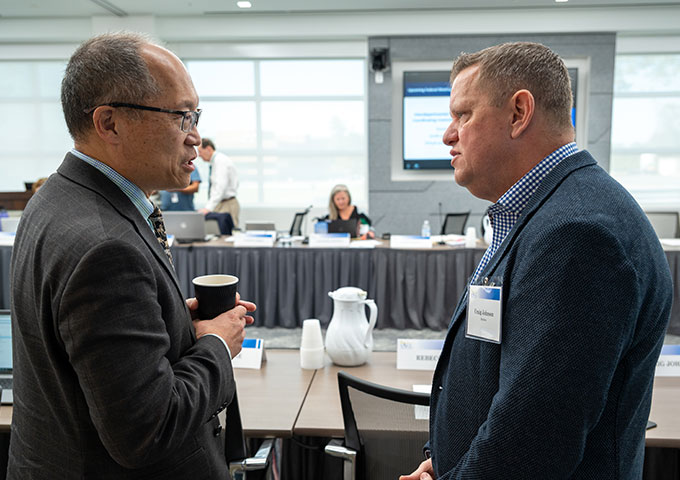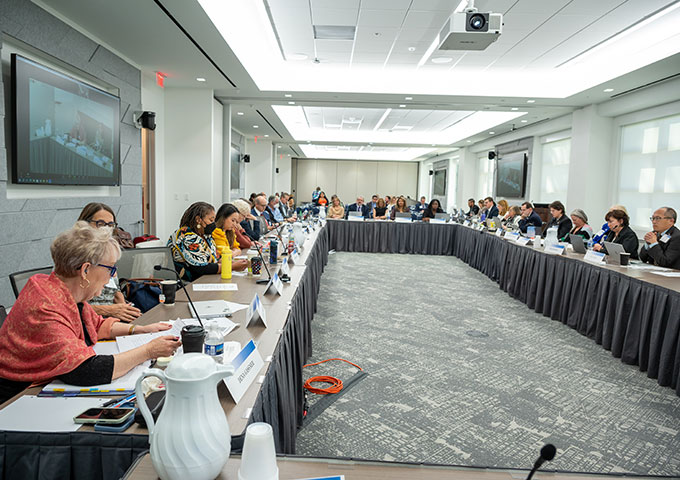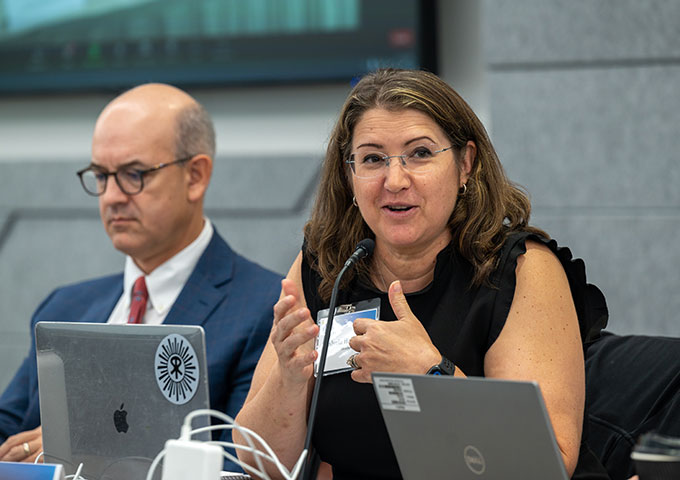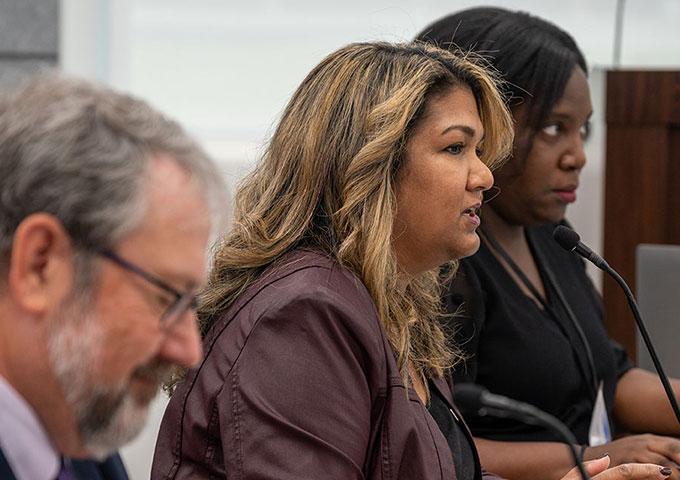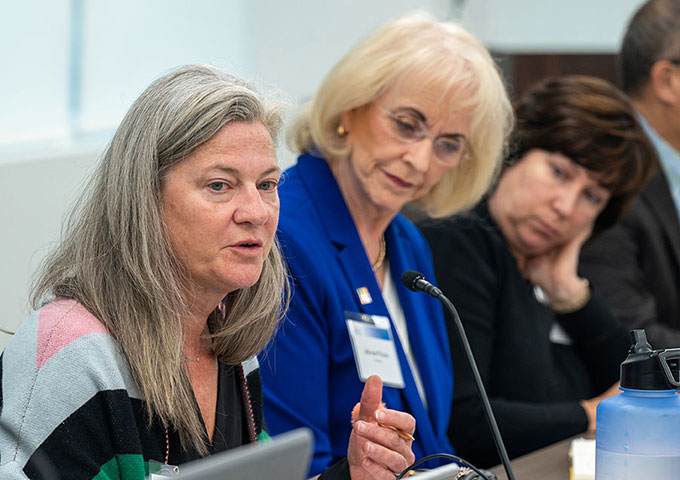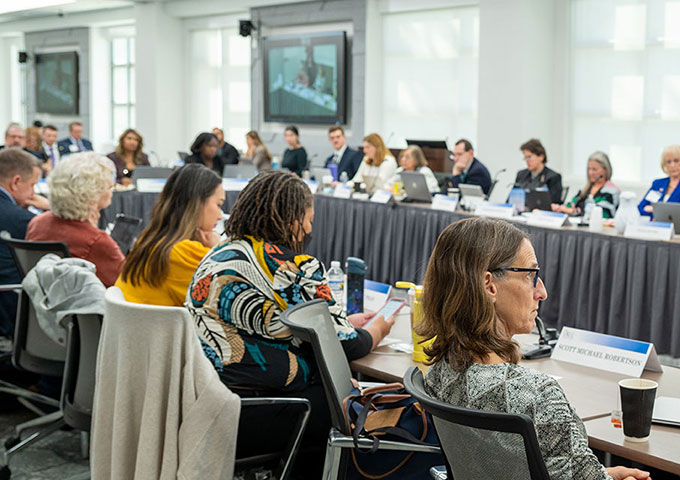IACC Full Committee Meeting (Hybrid)
 Full Meeting Video
Full Meeting Video
 Photo Gallery
Photo Gallery
 Event Information
Event Information
| Topic | Topic Description |
|---|---|
| Date: | Wednesday, October 11, 2023 |
| Time: | 10:00 a.m. to 5:00 p.m. ET |
| Place: | National Institute of Mental Health (NIMH) 6001 Executive Boulevard, Neuroscience Center (NSC) First Floor Conference Room Rockville, MD 20852 |
| Cost: | The event is free and open to the public. |
| Public Comments: | The IACC welcomes public comment from members of the autism community. Please review IACC's "Spirit of Collaboration," public comment guidelines, and full instructions prior to submitting your comment. The deadline for submission of comments for the October IACC meeting is Wednesday, September 20, 2023. |
| Disability Accommodations: | Captioning will be available. Individuals who need sign language interpreters and/or other reasonable accommodations to participate in this event may contact Rebecca Martin at Rebecca.martin@nih.gov or 301-435-0886. Please make accommodation requests 7 business days prior to the event. |
| Security: | Visitors will be asked to sign in and show one form of identification (for example, a government-issued photo ID, driver’s license, or passport) at the meeting registration desk during the check-in process. Pre-registration is recommended. Seating will be limited to the room capacity and seats will be on a first come, first served basis. |
 Agenda
Agenda
| Time | Event | ||||||||||||||||||
|---|---|---|---|---|---|---|---|---|---|---|---|---|---|---|---|---|---|---|---|
| 10:00 a.m. | |||||||||||||||||||
| 10:20 | |||||||||||||||||||
| 10:30 | |||||||||||||||||||
| 10:50 | |||||||||||||||||||
| 11:05 |
Break
|
||||||||||||||||||
| 11:10 | |||||||||||||||||||
| 11:40 | |||||||||||||||||||
| 11:50 |
Lunch Break
|
||||||||||||||||||
| 12:50 p.m. |
|
||||||||||||||||||
| 1:15 |
Break
|
||||||||||||||||||
| 1:20 |
Autism Mental Health Research: Progress and Needs
|
||||||||||||||||||
| 3:45 |
Break
|
||||||||||||||||||
| 3:50 |
Addressing the Mental Health Needs of Autistic People Through the Mental Health Service System
|
||||||||||||||||||
| 4:55 |
Schedule is subject to change. For more information on upcoming events, please see https://iacc.hhs.gov/meetings/iacc-meetings/
Next IACC Full Committee Meeting:
Wednesday, January 24, 2024, 10:00 a.m. – 5:00 p.m.
- October Meeting Minutes (PDF 373 KB)
 Speakers
Speakers
Anupa Iyer Geevarghese
Chief of Staff, Office of Disability Employment Policy, U.S. Department of Labor
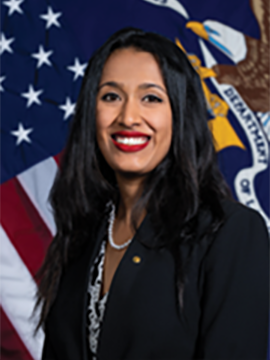
As Chief of Staff for the Office of Disability Employment Policy (ODEP), Anupa Iyer Geevarghese collaborates closely with ODEP’s Assistant Secretary and other U.S. Department of Labor (DOL) leaders to identify and implement strategies for increasing the number and quality of employment opportunities for people with disabilities. Ms. Iyer Geevarghese draws on years of legal experience in both the public and nonprofit sectors. She came to DOL from the U.S. Department of Defense, where she served as a subject matter expert and Senior Disability Policy Advisor for diversity, equity, inclusion, and accessibility (DEIA) initiatives. Prior to that, she worked for seven years at the Equal Employment Opportunity Commission (EEOC) Office of Federal Operations (OFO), where she was instrumental in implementing updates strengthening Section 501 of the Rehabilitation Act of 1973. Before joining EEOC’s OFO, Ms. Iyer Geevarghese was a Confidential Assistant to EEOC Commissioner Chai Feldblum, a position through which she played a leading role in the agency’s “Curb Cuts to the Middle Class” initiative, an innovative federal cross-agency effort to increase employment and economic self-sufficiency for people with disabilities. Before beginning federal service, she worked for various non-profit advocacy organizations, among them the Mental Disability Advocacy Center, and served as a Union Organizer for the Service Employees International Union (SEIU). Ms. Iyer Geevarghese holds a J.D. from Seattle University School of Law and B.A. in Political Science from the University of California Los Angeles.
John Katz
Director of Programs, Sunflower Bakery
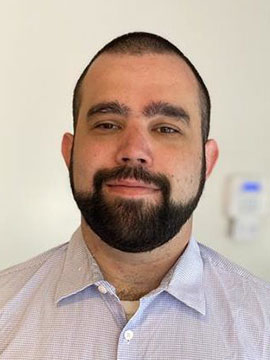
Mr. John Katz is Director of Programs at Sunflower Bakery, which provides job training and employment for adults with learning differences in pastry arts, production baking, barista service, and front of house operations. Prior to coming to Sunflower, he worked several years as a chef. He then served as Operations Manager for Sodexo at Adventist Shady Grove Medical Center. Mr. Katz is further developing an employment training program to enable Sunflower’s graduates to secure job and career opportunities in the pastry arts and hospitality industries.
Carla Mazefsky, Ph.D.
Nancy J. Minshew MD Endowed Chair in Autism Research; Professor of Psychiatry, Psychology, and Clinical and Translational Science; Director, REAACT Program, University of Pittsburgh
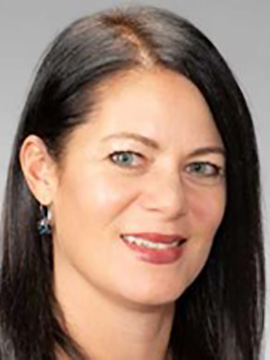
Dr. Carla Mazefsky is a licensed clinical psychologist and Professor of Psychiatry, Psychology, and Clinical and Translational Science at the University of Pittsburgh. She is also the Director of the Regulation of Emotion in Autistic Adults, Children, and Teens (REAACT) Program. She first joined the University of Pittsburgh in 2006 as an Assistant Professor in Pediatrics at the Child Development Unit. Most of Dr. Mazefsky’s research centers around understanding, assessing, and supporting emotion regulation in autism, with a particular focus on adolescence and adulthood. Her accomplishments include the development of the Emotion Dysregulation Inventory (EDI), a questionnaire that is now in use in over 40 countries across the world. She also co-authored the Emotion Awareness and Skills Enhancement Program (EASE) with Drs. Kelly Beck, Susan White, and Caitlin Conner. She hopes that her work through REAACT, a NIMH Autism Center of Excellence, leads to improved mental health and quality of life for autistic people. She is currently studying mental health and suicide in autistic adults. Dr. Mazefsky completed her undergraduate training at The College of William and Mary, followed by a pre-doctoral internship at Brown University. She received her doctorate in in Clinical Psychology at Virginia Commonwealth University and completed a post-doctoral fellowship at Virginia Institute for Psychiatric and Behavioral Genetics.
Matthew Siegel, M.D.
Professor of Psychiatry and Pediatrics, Tufts University School of Medicine; Vice President of Medical Affairs, Developmental Disorders Service Line, Maine Behavioral Healthcare
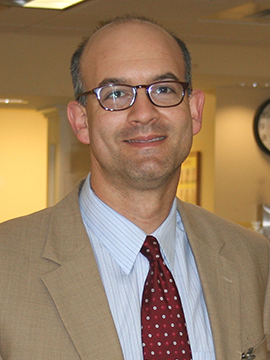
Dr. Matthew Siegel is a Professor of Psychiatry and Pediatrics of Tufts University School of Medicine, Vice President of Medical Affairs, Developmental Disorders Service Line of Maine Behavioral Healthcare, and Faculty Scientist at the Maine Medical Center Research Institute. Dr. Siegel attended Amherst College and Stanford Medical School and trained at Brown University in child psychiatry, psychiatry, and pediatrics. He is the Principal Investigator and Director of the Autism and Developmental Disorders Inpatient Research Collaborative (ADDIRC), a network of specialized child psychiatry units performing studies of children severely affected by autism and intellectual disability. Dr. Siegel has developed a widely recognized continuum of care and clinical research focused on treatment of serious challenging behaviors in youth with autism and related disorders. He is a co-author of the American Academy of Child Psychiatry's Practice Parameter on the Assessment and Treatment of Children and Adolescents with Autism Spectrum Disorder and the Parameter for the Assessment and Treatment of Psychiatric Disorders in Children and Adolescents with Intellectual Disability.
Christina McDonnell, Ph.D.
Assistant Professor, Department of Psychology, University of Wyoming
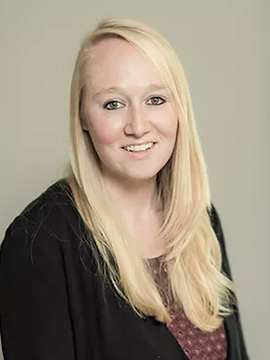
Dr. Christina McDonnell is an Assistant Professor in the Department of Psychology at the University of Wyoming and a licensed clinical psychologist. Her research focuses on understanding and supporting mental health among autistic individuals, with a particular focus on those who have also experienced traumatic stress or violence. Dr. McDonnell received the International Society for Autism Research (INSAR) Early Career Investigator Award in 2019, and the Early Career Award from the Association for Behavioral and Cognitive Therapies (ABCT) Autism Spectrum and Developmental Disabilities Special Interest Group in 2020. Most recently, Dr. McDonnell's team has evaluated the applicability of trauma-focused cognitive behavioral therapy for Autistic youth via telehealth, with funding from the Organization for Autism Research (OAR). They are also currently directing a participatory study of a narrative-based trauma support program for autistic adults, with the support of the National Institute of General Medical Sciences WY-IDeA Networks of Biomedical Research Excellence (INBRE) program. Dr. McDonnell completed her Ph.D. in Clinical Psychology at the University of Notre Dame, clinical internship training at the Medical University of South Carolina, and postdoctoral training at the University of Western Ontario.
Kelly Beck, Ph.D., LPC, CRC
Assistant Professor of Psychiatry, University of Pittsburgh
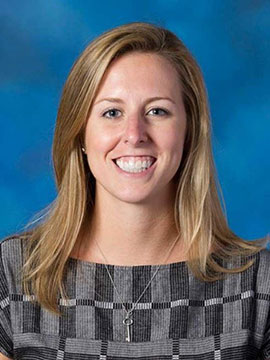
Dr. Kelly Beck is an Assistant Professor of Psychiatry and a Clinical and Translational Science Scholar (KL2 Scholar) at the University of Pittsburgh. She is a rehabilitation scientist, clinical educator, and Licensed Professional Counselor that works clinically with individuals with disabilities across the lifespan. Her specialty is using participatory research methods to design and test mental health interventions for autistic people. Dr. Beck is a qualified Mindfulness-Based Stress Reduction (MBSR) teacher and has over 11 years of experience teaching mindfulness meditation. She has evaluated the use of MBSR for autistic adults with aims to improve quality of life and established feasibility and efficacy. Dr. Beck is a co-developer of the Emotion Awareness and Skills Enhancement Program (EASE), a mindfulness-based intervention for autistic adolescents and young adults with and without co-occurring intellectual disability. She was awarded a career development award (KL2) to expand her research to understand barriers and facilitators to implementing emotion dysregulation interventions for autistic adolescents and adults in community mental health care. Dr. Beck currently runs the Pittsburgh Adult Autism Research Community Collaborative and is the Dissemination and Partnership Core Lead for the NIMH-funded Pitt Autism Center of Excellence focused on understanding mental health and suicide risk in autistic adults. She also leads the Schools Unified in Neurodiversity project, a community based participatory research project that designed a professional development training program on fostering inclusive school environments for neurodivergent children. Dr. Beck received her Ph.D. in Rehabilitation Science from the University of Pittsburgh and completed her internship at the UPMC Center for Integrative Medicine.
Xenia Borue, M.D., Ph.D.
Co-chair, Center for Excellence in Autism Research (CeFAR) External Partners Board, Regulation of Emotion in Autistic Adults, Children, and Teens (REAACT) Program, University of Pittsburgh

Dr. Xenia Borue serves as the co-chair to the Center for Excellence in Autism Research (CeFAR) external partners board, and a lead advisor to the Regulation of Emotion in Autistic Adults, Children, and Teens (REAACT) Research Program. Dr. Borue’s research interests include sensory processing and emotion regulation in ASD. Her private practice, Full Spectrum Psychiatry, is dedicated to meeting the needs of patients with developmental disorders across the lifespan. After completing her bachelor’s at Cornell University in Ithaca, NY, Dr. Borue attended the University of Virginia School of Medicine, Charlottesville, VA. She received her medical and doctoral degrees through their NIH-funded Medical Scientist Training Program. She subsequently completed her General Adult Psychiatry Residency and her Child & Adolescent Psychiatry Fellowship at Western Psychiatric Institute and Clinic/ Children’s Hospital of Pittsburgh—University of Pittsburgh Medical Center, Pittsburgh, PA.
Lisa Morgan, M.Ed., CAS
Founder and Co-chair, Autism and Suicide Prevention Workgroup
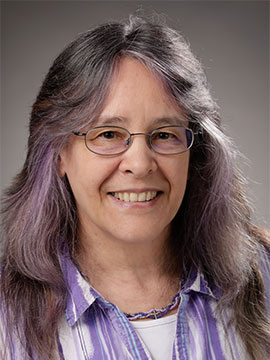
Ms. Lisa Morgan is the founder and co-chair of the Autism and Suicide Prevention Workgroup. She is a subject matter expert as an autistic adult with lived-experience in the field of suicidology: as a suicide loss survivor, co-researcher, teacher/trainer, and speaker. Ms. Morgan is the author of several books, articles, and has developed autism specific resources. She is a consultant on the Patient-Centered Outcomes Research institute (PCORI)’s 9-million-dollar research award to compare two safety plans to support autistic youth and young adults. Ms. Morgan has a master’s degree in the Art of Teaching in Special Education and is currently pursuing a master’s degree in Social Work.
Kayla Rodriguez
Co-Chair, Executive Advisory Board, Autistic Women and Non-Binary Network
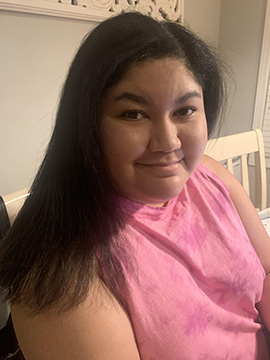
Ms. Kayla Rodriguez is the Executive Advisory Committee Co-Chair for AWN (AWN). She is also a founding member of the Women Enabled International U.S. Gender and Disability Justice Alliance. Ms. Rodriguez works as the social media coordinator for the Foundation for Divergent Minds, a national nonprofit that seeks to ensure equity, access, and fulfilled lives through inclusive, practical, and affirming neurodiversity-based programming and education. She is a Puerto Rican autistic adult in Georgia by way of her native New York and identifies as a woman of color and a lesbian. She was trained in the Bobby Dodd Institute (BDI) Ambassador Program, the Georgia LEND (Leadership Education in Neurodevelopmental Disabilities) Program, and the My Voice My Participation My Board Program to be a skilled advocate. She has been honored with a Golden Goal Goldie Young Community Advocate Award as well as the BDI Empowers Luminaries Award. She also authored a chapter in the collection Sincerely, Your Autistic Child. Ms. Rodriguez completed a policy internship at the Georgia Council on Developmental Disabilities and previously served as Vice President and Chief Ambassador of Autistic Self-Advocacy Atlanta, an affiliate group of the Autistic Self Advocacy Network (ASAN).
Ian Neumaier
Student, Frederick Honors College, University of Pittsburgh
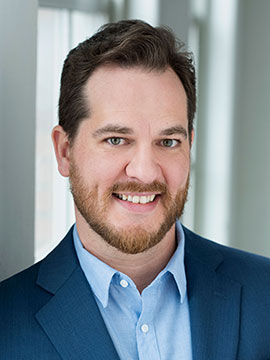
Ian Neumaier is a student in the University of Pittsburgh’s Frederick Honors College, where he studies philosophy, law, and society. As a TRIO McNair Scholar, Mr. Neumaier’s research has concentrated on the ways in which academic policy and communication dynamics within law schools combine to influence student resilience and engagement. Mr. Neumaier is a member of the Chancellor's Public Safety Advisory Council, where he collaborates closely with university leadership to proactively assess and enhance safety protocols and responses. He is also a member of the University's Ad Hoc Committee on Generative AI in Research and Education, a role that involves crafting policy recommendations to harness the potential of generative AI in various domains. Mr. Neumaier is the founder and director of a nonprofit organization which has made significant strides in developing innovative, DIY, equipment and pioneering new, integrative-sports centered around integrative-play and integrative-competition. He has provided services and consulting to a wide array of entities, including Allegheny County, the County Health Department, the City of Pittsburgh, school districts, museums, disability service organizations, C.I.L.'s, and many others. When not doing these things, Mr. Neumaier prefers to be in the woods reading and hiking with his cat.
Morénike Giwa Onaiwu, Ph.D.
Equity, Justice, and Representation Executive Committee Chair, Autistic Women and Nonbinary Network (AWN); Humanities Scholar, Center for the Study of Women, Gender, and Sexuality, Rice University

Dr. Morénike Giwa Onaiwu (she/they) is an autism self-advocate and parent of several children, including an autistic son and daughter. Dr. Giwa Onaiwu is an educator, social scientist/activist, and consultant whose work focuses on disability justice, intersectionality, meaningful community involvement, human rights, and inclusion. Dr. Giwa Onaiwu is a Humanities Scholar at Rice University in the Center for the Study of Women, Gender, and Sexuality. Dr. Giwa Onaiwu is also the Equity, Justice, and Representation Chair for the Autistic Women & Nonbinary Network and has served on numerous national and global committees, including consecutive terms chairing NIH and HRSA-funded collaborative workgroups. Dr. Giwa Onaiwu is an award-winning public speaker and writer who has written for and/or been featured in numerous articles, books, and other traditional and digital platforms, often drawing from both professional knowledge as well as personal experiences as a late-diagnosed autistic non-binary woman of color and an autistic parent of children with disabilities in a multicultural, serodifferent, neurodiverse family. Dr. Giwa Onaiwu's board membership includes the Autistic Researcher Review Board (ARRB) of the Autism Intervention Research Network for Physical Health at UCLA, Foundations for Divergent Minds, National Research Center for Parents with Disabilities at Brandeis University, and Institute for Exceptional Care. Dr. Giwa Onaiwu earned an undergraduate degree in International Relations, an M.A. in Special Education with a concentration in autism and developmental disabilities from the University of Texas Permian Basin and an interdisciplinary Ph.D. on the intersection of disability, race, and gender from University of East Anglia.
Stacy Nonnemacher, Ph.D.
Director of Cross-Systems Strategies, National Association for State Directors of Developmental Disabilities Services (NASDDDS)

Dr. Stacy Nonnemacher is the Director of Cross-Systems Strategies for the National Association for State Directors of Developmental Disabilities Services (NASDDDS). She is responsible for leading NASDDDS’ efforts to support states in developing positive support models for people with dual diagnosis, medical complexity, multi system involvement, and other populations with complex support needs. She most recently served as the Clinical Director for Pennsylvania’s Bureau of Supports for Autism and Special Populations in the Department of Human Services’ Office of Developmental Programs. In this role, Stacy influenced, and informed policy and programmatic decisions related to state Medicaid programs focusing on clinical practices and behavioral science to affect change and create best practices in supporting people, their families, and other supporters. Dr. Nonnemacher has over twenty-five years of experience in the field supporting children, adolescents, and adults in home, community, and school settings, and has also conducted applied research and capacity building efforts that embrace the application and replication of positive approaches. Dr. Nonnemacher received her Ph.D. from Lehigh University.
Debra Pinals, M.D.
Medical Director, Behavioral Health and Forensic Programs, Michigan Department of Health and Human Services (MDHHS); Director of the Program in Psychiatry, Law, and Ethics, University of Michigan; Clinical Professor of Psychiatry, University of Michigan Medical School; Clinical Adjunct Professor, University of Michigan Law School
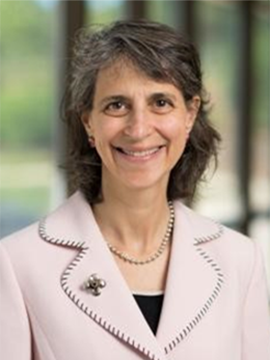
Dr. Debra Pinals is the Director of the University of Michigan’s (U-M) Program in Psychiatry, Law, and Ethics, a collaboration between U-M Law School and U-M's Department of Philosophy. She is a Clinical Professor of Psychiatry at the U-M Medical School and has a concurrent appointment as a Clinical Adjunct Professor at the U-M Law School. Additionally, Dr. Pinals serves as the Medical Director of Behavioral Health and Forensic Programs at the Michigan Department of Health and Human Services (MDHHS). She has worked in outpatient and inpatient settings, forensic and correctional facilities, emergency rooms, and court clinics, and has been an expert witness in many cases. During her career she has been a clinical policy advisor on the opioid crisis. She has consulted on complex systems cases for people with mental illness, substance use disorder, and intellectual and developmental disabilities undergoing treatment. Dr. Pinals is a past president of the American Academy of Psychiatry and the Law (AAPL). She is current Chair of both the American Psychiatric Association’s (APA) Council on Psychiatry and the Law and the Medical Directors Division for the National Association for State Mental Health Program Directors (NASMHPD). Dr. Pinals is Board Certified in Psychiatry, Forensic Psychiatry, and Addiction Medicine. She received her medical degree from The Ohio State University College of Medicine and completed psychiatry and forensic training through Harvard Medical School and conducted a research fellowship at the National Institute of Mental Health.
Jonah Cunningham, M.P.P.
President and CEO, National Association of County Behavioral Health and Developmental Disability Directors (NACBHDD)
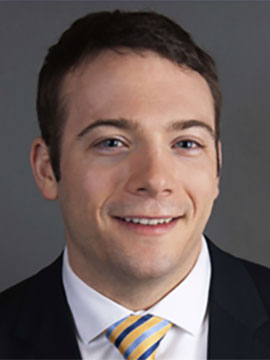
Mr. Jonah Cunningham serves as President and CEO of the National Association of County Behavioral Health and Developmental Disability Directors (NACBHDD). In this role, he proactively advocates for national policies that recognize and support the critical role counties play in caring for people affected by mental illness, addiction, and developmental disabilities. In this capacity, he also serves as Executive Director of the National Association for Rural Mental Health. Prior to joining NACBHDD, Mr. Cunningham worked at Trust for America’s Health, a public health think tank, where he focused extensively on ways to reduce mortality from substance misuse and suicide. Additionally, he worked as a congressional staffer for several years in the office of Congresswoman Grace F. Napolitano (CA), where he helped to reestablish the Congressional Mental Health Caucus and created a Suicide Prevention Task Force within the Caucus. Mr. Cunningham has a Bachelor of Science in Political Science from the University of Utah and a Master of Public Policy from The George Washington University.
 Materials
Materials
- Draft of April 2023 IACC Meeting Minutes (PDF 318 KB)
- National Autism Coordinator Update (PDF - 302 KB)
- 2023 Summary of Advances Nominations (PDF - 289 KB)
- Federal Agency, Public Member, and Community Updates (PDF - 361 KB)
- Funding Opportunities, Requests for Information, and Upcoming Federal Meetings and Conferences (PDF - 1 MB)
- A Proclamation on National Disability Employment Awareness Month, 2023
- U.S. Department of Labor, Office of Disability Employment Policy
- News and Events
- Journal Articles
- Andrzejewski T, DeLucia EA, Semones O, Khan S, McDonnell CG. Adverse Childhood Experiences in Autistic Children and Their Caregivers: Examining Intergenerational Continuity. J Autism Dev Disord. 2023 Jul;53(7):2663-2679. doi: 10.1007/s10803-022-05551-w. Epub 2022 Apr 12. PMID: 35412212.
- Beck KB, Conner CM, Breitenfeldt KE, Northrup JB, White SW, Mazefsky CA. Assessment and Treatment of Emotion Regulation Impairment in Autism Spectrum Disorder Across the Life Span: Current State of the Science and Future Directions. Psychiatr Clin North Am. 2021 Mar;44(1):95-110. doi: 10.1016/j.psc.2020.11.008. PMID: 33526240.
- Beck KB, Conner CM, White SW, Mazefsky CA. Mindfulness "Here and Now": Strategies for Helping Adolescents With Autism. J Am Acad Child Adolesc Psychiatry. 2020 Oct;59(10):1125-1127. doi: 10.1016/j.jaac.2020.07.004. PMID: 32981632.
- Beck KB, Northrup JB, Breitenfeldt KE, Porton S, Day TN, MacKenzie KT, Conner CM, Mazefsky CA. Stakeholder informed development of the Emotion Awareness and Skills Enhancement team-based program (EASE-Teams). Autism. 2022 Apr;26(3):586-600. doi: b10.1177/13623613211061936. Epub 2021 Dec 14. PMID: 34903083; PMCID: PMC9136998.
- Conner CM, Golt J, Shaffer R, Righi G, Siegel M, Mazefsky CA. Emotion Dysregulation is Substantially Elevated in Autism Compared to the General Population: Impact on Psychiatric Services. Autism Res. 2021 Jan;14(1):169-181. doi: 10.1002/aur.2450. Epub 2020 Dec 8. PMID: 33815651; PMCID: PMC8018538.
- Conner CM, Golt J, Righi G, Shaffer R, Siegel M, Mazefsky CA. A Comparative Study of Suicidality and Its Association with Emotion Regulation Impairment in Large ASD and US Census-Matched Samples. J Autism Dev Disord. 2020 Oct;50(10):3545-3560. doi: 10.1007/s10803-020-04370-1. PMID: 31939083; PMCID: PMC7893480.
- Day TN, Mazefsky CA, Yu L, Zeglen KN, Neece CL, Pilkonis PA. The Emotion Dysregulation Inventory-Young Child: Psychometric Properties and Item Response Theory Calibration in 2- to 5-Year-Olds. J Am Acad Child Adolesc Psychiatry. 2023 Jul 6:S0890-8567(23)00376-3. doi: 10.1016/j.jaac.2023.04.021. Epub ahead of print. PMID: 37422108.
- Hughes J, Roberts R, Tarver J, Warters-Louth C, Zhang B, Southward E, Shaw R, Edwards G, Waite J, Pearson E. 'It wasn't the strategies on their own': Exploring caregivers' experiences of accessing services in the development of interventions for autistic people with intellectual disability. Autism. 2023 Sep 15:13623613231196084. doi: 10.1177/13623613231196084. Epub ahead of print. PMID: 37712611.
- Mazefsky CA, Conner CM, Breitenfeldt K, Leezenbaum N, Chen Q, Bylsma LM, Pilkonis P. Evidence Base Update for Questionnaires of Emotion Regulation and Reactivity for Children and Adolescents. J Clin Child Adolesc Psychol. 2021 Nov-Dec;50(6):683-707. doi: 10.1080/15374416.2021.1955372. Epub 2021 Aug 26. PMID: 34436940; PMCID: PMC10205090.
- McDonnell CG, Andrzejewski T, Dike J. Intergenerational trauma: Parental PTSD and parent-reported child abuse subtypes differentially relate to admission characteristics in the autism inpatient collection. Autism Res. 2022 Apr;15(4):665-676. doi: 10.1002/aur.2669. Epub 2022 Jan 12. PMID: 35018722.
- McDonnell CG, Boan AD, Bradley CC, Seay KD, Charles JM, Carpenter LA. Child maltreatment in autism spectrum disorder and intellectual disability: results from a population-based sample. Child Psychol Psychiatry. 2019 May;60(5):576-584. doi: 10.1111/jcpp.12993. Epub 2018 Oct 19. PMID: 30368827; PMCID: PMC6458088.
- Northrup JB, Goodwin MS, Peura CB, Chen Q, Taylor BJ, Siegel MS, Mazefsky CA. Mapping the time course of overt emotion dysregulation, self-injurious behavior, and aggression in psychiatrically hospitalized autistic youth: A naturalistic study. Autism Res. 2022 Oct;15(10):1855-1867. doi: 10.1002/aur.2773. Epub 2022 Jun 25. PMID: 35751466; PMCID: PMC9560956.
- Northrup JB, Patterson MT, Mazefsky CA. Predictors of Severity and Change in Emotion Dysregulation among Children and Adolescents with ASD. J Clin Child Adolesc Psychol. 2021 Nov-Dec;50(6):708-729. doi: 10.1080/15374416.2021.1955369. Epub 2021 Aug 9. PMID: 34369833; PMCID: PMC8633072.
- Goodwin MS, Mazefsky CA, Ioannidis S, Erdogmus D, Siegel M. Predicting aggression to others in youth with autism using a wearable biosensor. Autism Res. 2019 Aug;12(8):1286-1296. doi: 10.1002/aur.2151. Epub 2019 Jun 21. PMID: 31225952; PMCID: PMC6988899.
- Shaffer RC, Schmitt LM, Reisinger DL, Coffman M, Horn P, Goodwin MS, Mazefsky C, Randall S, Erickson C. Regulating Together: Emotion Dysregulation Group Treatment for ASD Youth and Their Caregivers. J Autism Dev Disord. 2023 May;53(5):1942-1962. doi: 10.1007/s10803-022-05461-x. Epub 2022 Feb 9. PMID: 35141815; PMCID: PMC10126211.
- Taylor BJ, Sanders KB, Kyle M, Pedersen KA, Veenstra-Vanderweele J, Siegel M. Inpatient Psychiatric Treatment of Serious Behavioral Problems in Children with Autism Spectrum Disorder (ASD): Specialized Versus General Inpatient Units. J Autism Dev Disord. 2019 Mar;49(3):1242-1249. doi: 10.1007/s10803-018-3816-2. PMID: 30465295.
- Publications
- IACC Activities
- Websites
- Media
- Journal Articles
- Maddox BB, Crabbe S, Beidas RS, Brookman-Frazee L, Cannuscio CC, Miller JS, Nicolaidis C, Mandell DS. "I wouldn't know where to start": Perspectives from clinicians, agency leaders, and autistic adults on improving community mental health services for autistic adults. Autism. 2020 May;24(4):919-930. doi: 10.1177/1362361319882227. Epub 2019 Nov 1. PMID: 31674198; PMCID: PMC7192780.
- Maddox BB, Dickson KS, Stadnick NA, Mandell DS, Brookman-Frazee L. Mental Health Services for Autistic Individuals Across the Lifespan: Recent Advances and Current Gaps. Curr Psychiatry Rep. 2021 Aug 17;23(10):66. doi: 10.1007/s11920-021-01278-0. PMID: 34402984; PMCID: PMC8961310.
- Pinals DA, Hovermale L, Mauch D, Anacker L. Persons With Intellectual and Developmental Disabilities in the Mental Health System: Part 1. Clinical Considerations. Psychiatr Serv. 2022 Mar 1;73(3):313-320. doi: 10.1176/appi.ps.201900504. Epub 2021 Aug 4. PMID: 34346730.
- Pinals DA, Hovermale L, Mauch D, Anacker L. Persons With Intellectual and Developmental Disabilities in the Mental Health System: Part 2. Policy and Systems Considerations. Psychiatr Serv. 2022 Mar 1;73(3):321-328. doi: 10.1176/appi.ps.201900505. Epub 2021 Aug 4. PMID: 34346727.
- Schott W, Nonnemacher S, Shea L. Service Use and Unmet Needs Among Adults with Autism Awaiting Home- and Community-Based Medicaid Services. J Autism Dev Disord. 2021 Apr;51(4):1188-1200. doi: 10.1007/s10803-020-04593-2. PMID: 32671666.
- Song W, Salzer MS, Nonnemacher SL, Shea L. Lifespan service receipt and unmet needs among individuals on the autism spectrum. Adm Policy Ment Health. 2022 Jul;49(4):694-705. doi: 10.1007/s10488-022-01192-4. Epub 2022 Mar 23. PMID: 35320442.
- Websites
- Toolkits and Guides
- The Ohio State University Nisonger Center
- Mental Health Therapy Toolkit: A personal guide for adults with intellectual disability
- ID Mental Health Therapy Guidelines: Treating Adults with Intellectual Disability (lD) and Mental Health Conditions
- 2023 Psychotherapy Practice Guidelines: Working with Adults with Intellectual Disability and Cooccurring Mental Health Conditions
- The Ohio State University Nisonger Center
 Slides
Slides
- IACC Meeting Full Slide Deck (PDF - 33 MB)
 Public Comments
Public Comments
- Oral and Written Public Comments (PDF - 520 KB)
- Full Meeting Transcript (PDF – 514 KB)








